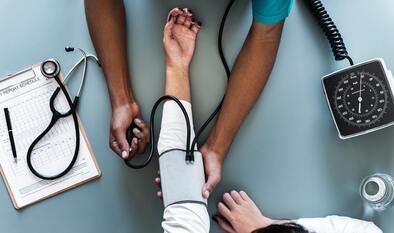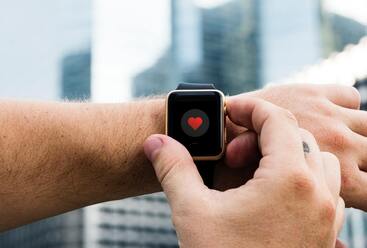|
The heart is central to our ability to live and live well. Often taken for granted until too late, heart health should be an important focus in our daily lives. It is a daily issue in my life and a key driver to what I eat, how I exercise and how I live due to the fact that my father passed away aged 63 due to a heart attack. He was fit and well. Didn’t drink or smoke but didn’t really exercise. To look at, you would think he was healthy (certainly by 1990’s standards), but little did we know what was going on inside. Heart health has various aspects and it is important to break them down to get an understanding of what you can focus on. Prevention Diet Anyone who has a passing interest in health will know about the role of diet in health. Today there is plenty of focus on fats (good vs bad) and well as the role of carbohydrates, (large amounts of bad carbohydrates in your diet will increase your risk of diabetes which in turn increases your risk of heart problems). There are plenty of food tracker apps and health coaches that can guide you to maintain a healthy diet and looking through our website will identify a few that should be considered. Exercise “Cardio” is the type of exercise we need to focus on when we are talking about heart health. What do we mean by this? It is any exercise that gets your heart rate up and makes you sweaty and slightly short of breath for 30 mins, 5 times a week. It is a lot of exercise and take it from me, life often makes it hard to meet this target. What is important is that you find something you enjoy that you can easily incorporate into your life for the next 30, 40 or 50 years of your life, (I really mean this!). We are talking about sustainable lifestyle changes. It can be anything, running, swimming, ballroom dancing, it doesn’t matter. As long as you enjoy it and can do it often, then that will work. Many of my patients have busy lives, kids and long commutes and often state because of this, they can’t exercise. It is however, important to think out of the box. For example, if you have a long commute on the train, then take a pair of running shoes to work. On the journey back, jump off the train a few stops early and do a fast pace walk or run home. Do this Monday to Friday and then forget about it, your exercise is done. Technology in the form of apps and wearables can track your levels of activity and motivate you to keep doing more, (see our health and wellness section for more information). Health Checks When I was young, I remember my father going to see his friend who was in the hospital as he had just had a heart attack. I remember asking Dad, how old his friend was, to which my Dad said “36 years old”. That seemed really old to me at the time but now I realise it was very young. Today, heart disease in 36 year olds is rare, so what has changed? Health checks have been introduced where your cholesterol and blood pressure are checked and lifestyle changes are advised to prevent a problem in the future. Currently people are having heart issues in their 60s to 70s rather than their 30s. Let’s look at the various health readings that your doctor would focus on that are relevant to heart health:
Health Technology In Heart Health In the digital health revolution, you can get access to health where and when you need it. If you are worried about your heart, what you can do is have the tools to provide the information for the doctor to make a safe and quick decision (note, many of these tools overlap and are useful for other conditions). From a heart point of view, the tools considered should be as follows:
Many people fear problems with the heart. Understanding what to do to prevent a problem and tracking whether what you are doing is effective, is what we are trying to empower people with at HealthAide. In addition, if a problem develops, how can you access health quickly and provide the doctor with the right information for him or her to diagnose you accurately, (remember, if in doubt call the emergency services). Many years later, my father’s untimely death remains an internal driver that motivates me to live healthily and promote healthy living habits in those who I look after. With technology, I am trying to spread this ethos globally. Finding your internal driver is important in making a change in your life. Consider what has happened in your life that has hit a raw nerve. Learn about what you can do to make a change and act to prevent history from repeating itself.
Blog post written by Dr Khurram Akhter. Khurram is an experienced primary care physician and a thought leader in the field of digital health. Disclaimer: This text does not serve as medical advice and if you have any questions, seek advice from your doctor.
0 Comments
Your comment will be posted after it is approved.
Leave a Reply. |
AuthorContributors Archives
March 2020
Categories
All
|
|
SOCIAL
|
HealthAide is an independent resource. We do not own shares or make profits from the products listed on this site. Products and services have been curated using the Four Principles of Healthcare Ethics (Beauchamp, T. and Childress, J. (1985) Principles of Biomedical Ethics)
© COPYRIGHT 2018. ALL RIGHTS RESERVED.






 RSS Feed
RSS Feed